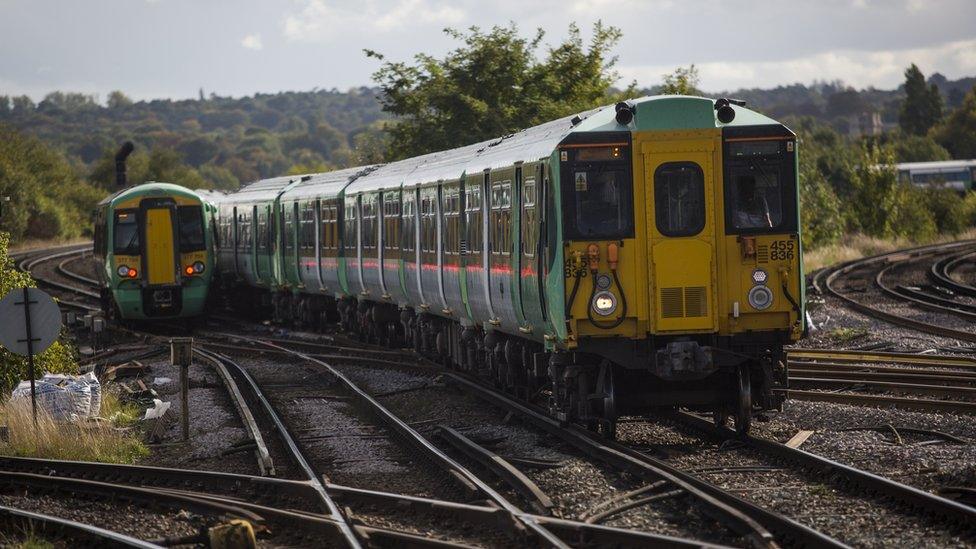Southern rail 'major delays' as union action grows
- Published
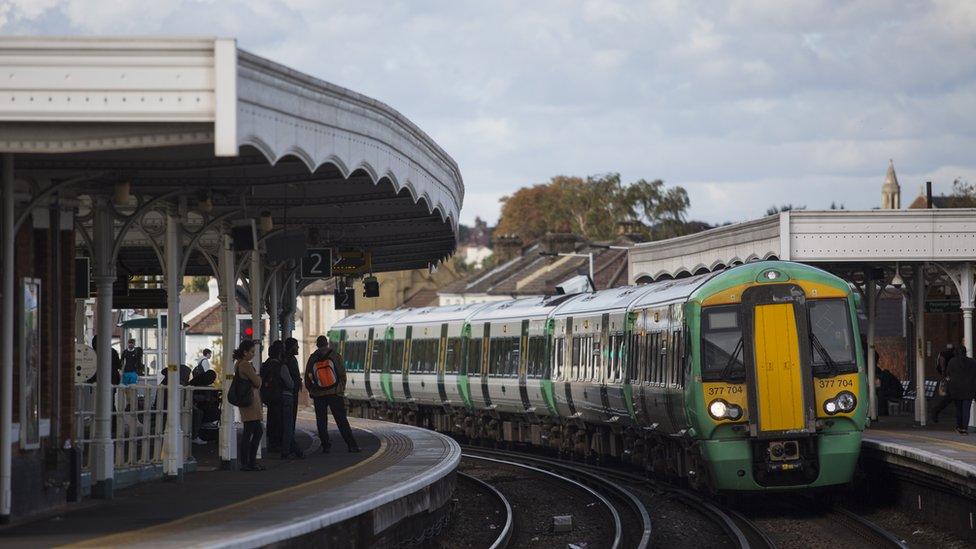
Commuters have been hit by strikes since April in the bitter row between Southern and the RMT
Commuters are facing major delays on the first day of a 72-hour strike on the Southern rail network.
The RMT union walked out at midnight in the continuing dispute over the role of conductors. The drivers' union, Aslef, has also begun an overtime ban.
Southern said about 50% of services were running.
During previous RMT strikes, the rail operator has kept about 60% of services on the move but the firm said the Aslef overtime ban has also had an impact.
Aslef has also planned to stage a drivers' strike next week, but Southern's parent company Govia Thameslink Railway is taking legal action in the High Court on Wednesday to try to stop the walkout.
Southern has said if the drivers' strike goes ahead there will be no services on most routes.
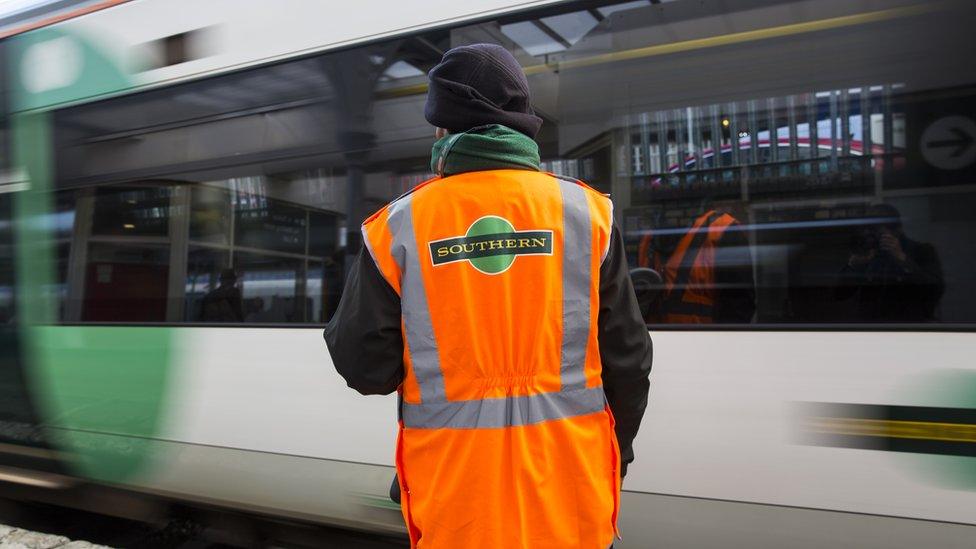
The long-running dispute is over plans for drivers, instead of conductors, to operate train doors
Southern refund: What you need to know
Southern commuters' tales of 'hell'
Southern tweeted, external: "Industrial action is significantly affecting services today. Please check ahead"
Meanwhile, passengers have been venting online.
Peter Izard tweeted, external: "Thanks to #southernstrike having to drive to work today then stay in hotel Wed Thursday high costs and family impact huge".
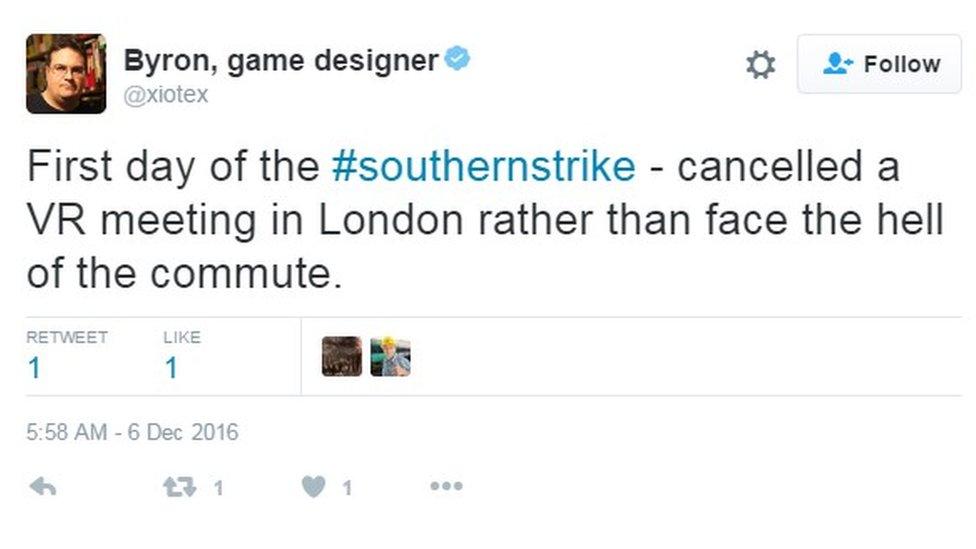
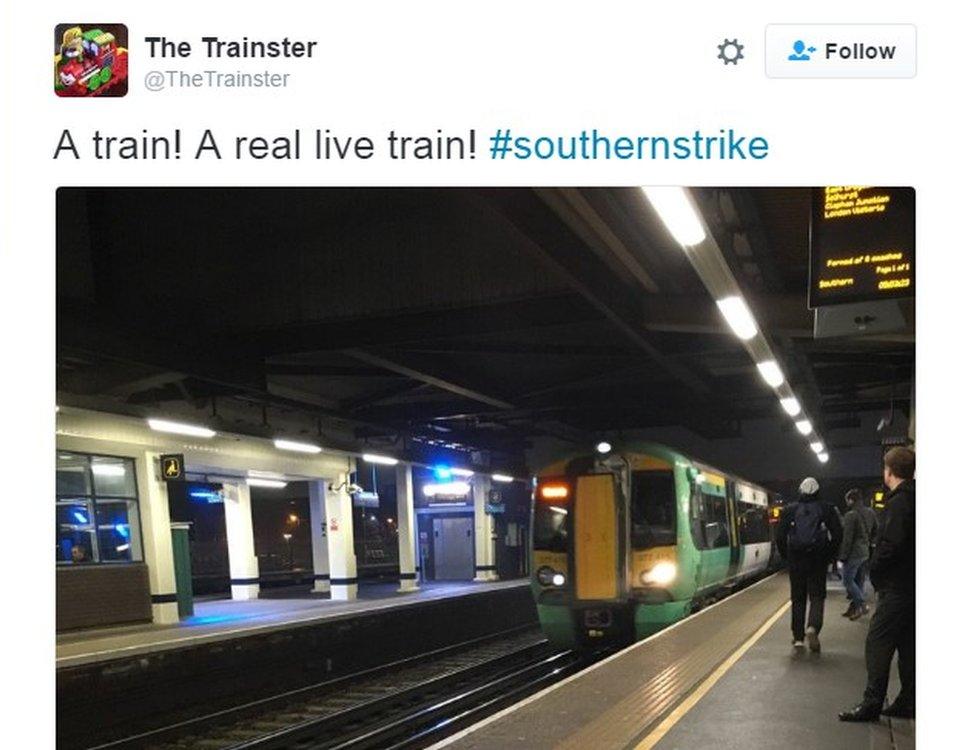
A 24-hour strike was also due to take place on two London Underground lines from Tuesday evening, but it has been suspended.
Mick Cash, general secretary of the RMT, said: "Our guards members on Southern rail remain rock solid and absolutely determined in their action in defence of rail safety."
He said the union would "make another attempt to engage" with the transport secretary, Chris Grayling, when he made a speech about the management of the rail network.
"Instead of parading around the newsrooms with his lethal scheme to give outfits like Southern a chance to wreck rail infrastructure, as well as our train operations, the transport secretary should be in a room with the unions and GTR sorting out the current shambles," he said.
'Utterly pointless'
Mr Grayling responded saying he did not think it was right for him to get involved in a strike which was "politically motivated".
"This is not a dispute between me and the unions," he said.
"I have actually met Aslef, I've met the TUC and I've met other unions but I don't think it's right and proper to insert myself into negotiations between a private company and a trade union."
In the Commons, the transport secretary also described the strike as "utterly pointless industrial action based on no-one losing their jobs [and] no-one losing any money".
The rail operator advised passengers to check ahead of travelling and said an amended timetable was in force. Queuing systems may have to be put in place at some stations during the morning rush hour, the company said.
It is the longest-running rail strike since the railways were privatised in 1996, with the RMT's members having first walked out in April.
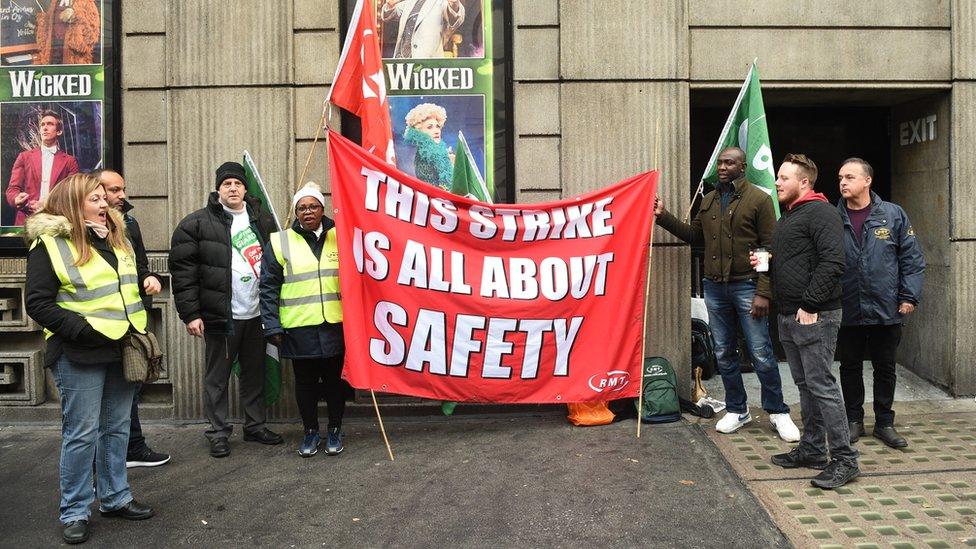
The union opposes changes amid fears over safety and job cuts
The RMT is fighting changes to the way services are operated, including giving drivers responsibility for opening and closing doors.
The company began imposing the changes in August despite union concerns over safety and job cuts.
Paul Plummer, chief executive of the Rail Delivery Group, which represents train operators, said: "Thousands of passengers are suffering more delays and disruptions thanks to more needless strikes by the unions.
"The truth is that these strikes hitting Southern customers are not about safety, not about jobs, and not about customer service.
"Trains where drivers close the doors are safe. All the independent safety experts say so.
"A third of trains across Britain operate this way and have done so safely for 30 years, and run in other countries around the world."
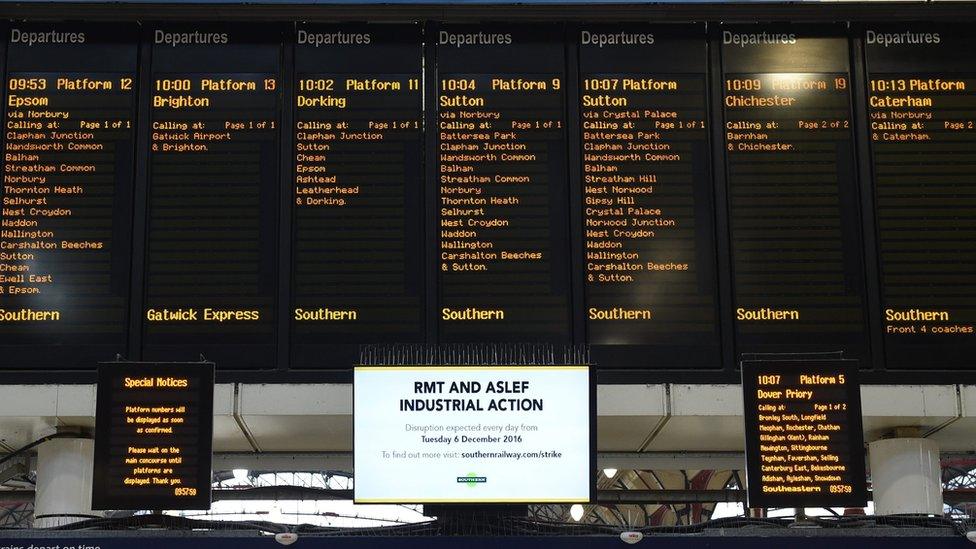
A sign warned passengers of disruption every day as a result of action by both the RMT and Aslef
A spokesman for Southern said: "No-one wants an end to this more than us.
"We have led the way in trying to resolve this dispute by talking to the unions for the best part of a year, but they won't move on the fundamental issue of helping us modernise our train service by letting a driver close the doors.
"This would help us cut cancellations, reduce delays and improve on-board customer service."
He said both the Office of Rail and Road and the Rail Safety and Standards Board had said the plans were safe.

Analysis: Paul Clifton, BBC South transport correspondent
RMT conductors began their strikes last April. Since the railway was privatised in the 1990s, no other industrial action has come close in either duration or intensity.
It's getting worse. Aslef drivers are joining in with an overtime ban. Conductors can disrupt a service, but drivers can stop almost every train from moving.
Comparisons with the miners' strike now start to stack up. Conductors are protesting about a new grade called on-board supervisor, even though 99% of them have now accepted the new roles. It's as if the original motive for a local strike has been pushed aside in a bigger fight against the government.
Everyone realises Southern is simply doing as it is told by the Department for Transport. Neither side can back down with honour intact.
Insiders tell me ministers will tough it out, overseeing long-overdue modernisation of working practices - as they see it. The unions believe safety will suffer.
If they lose, their grip on the railway will be weakened. Stuck in the middle, passengers are powerless to intervene.

Southern rail strike dates:
00:01 Tuesday 6 December to 23:59 Thursday 8 December (RMT)
00:01: Tuesday 13 December to 23:59 Wednesday 14 December (Aslef)
00:01 Friday 16 December to 23:59: Friday 16 December (Aslef)
00:01 Monday 19 December to 23:59 Tuesday 20 December (RMT)
00:01 Saturday 31 December to 23:59 Monday 2 January (RMT)
00:01 Monday 9 January to 23:59: Saturday 14 January (Aslef)

Are you a Southern rail customer? Share your experiences by emailing haveyoursay@bbc.co.uk, external.
Please include a contact number if you are willing to speak to a BBC journalist. You can also contact us in the following ways:
WhatsApp: +44 7525 900971
Send pictures/video to yourpics@bbc.co.uk, external
Tweet: @BBC_HaveYourSay, external
Send an SMS or MMS to 61124
- Published4 December 2016
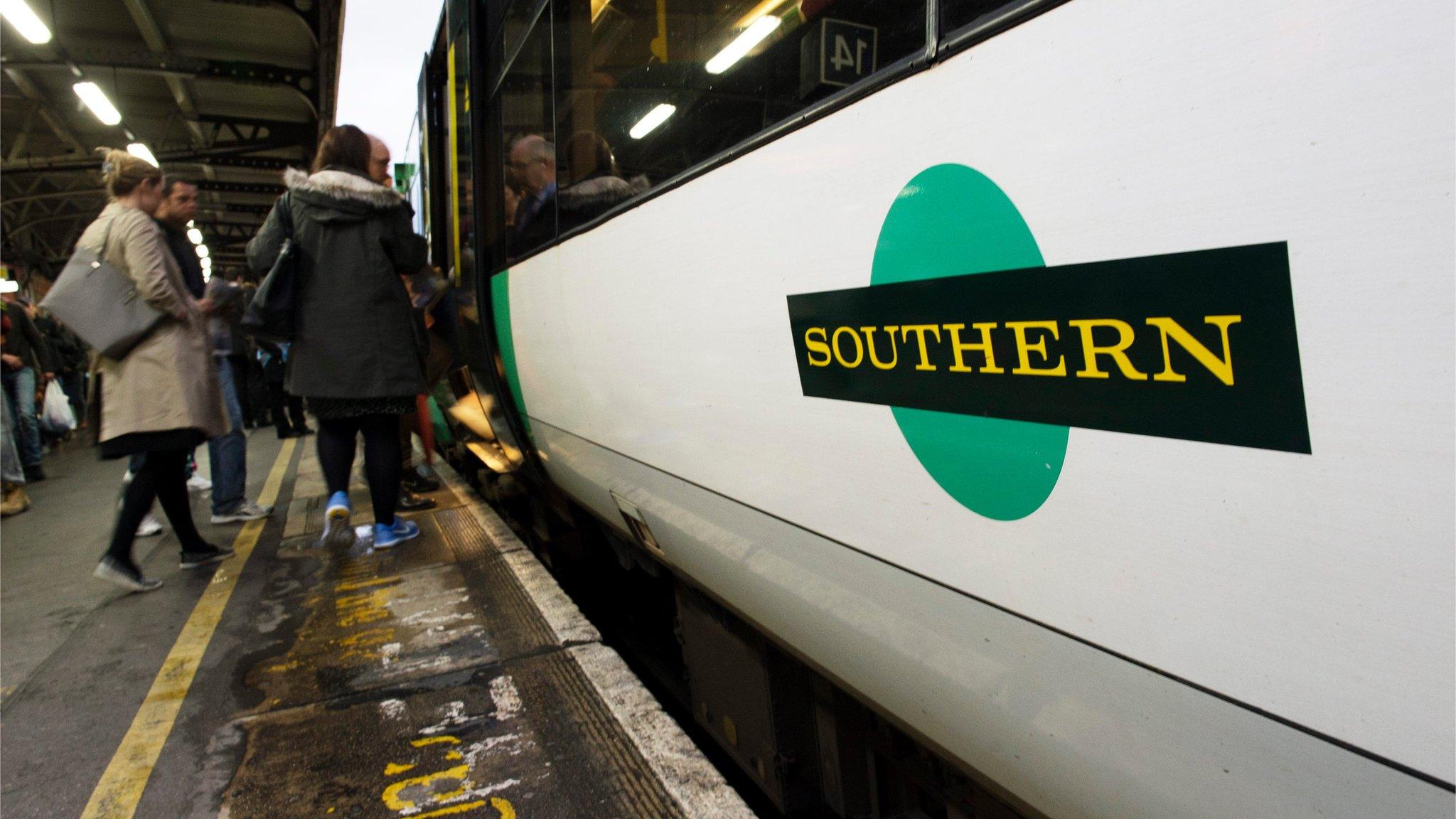
- Published6 December 2016

- Published2 December 2016
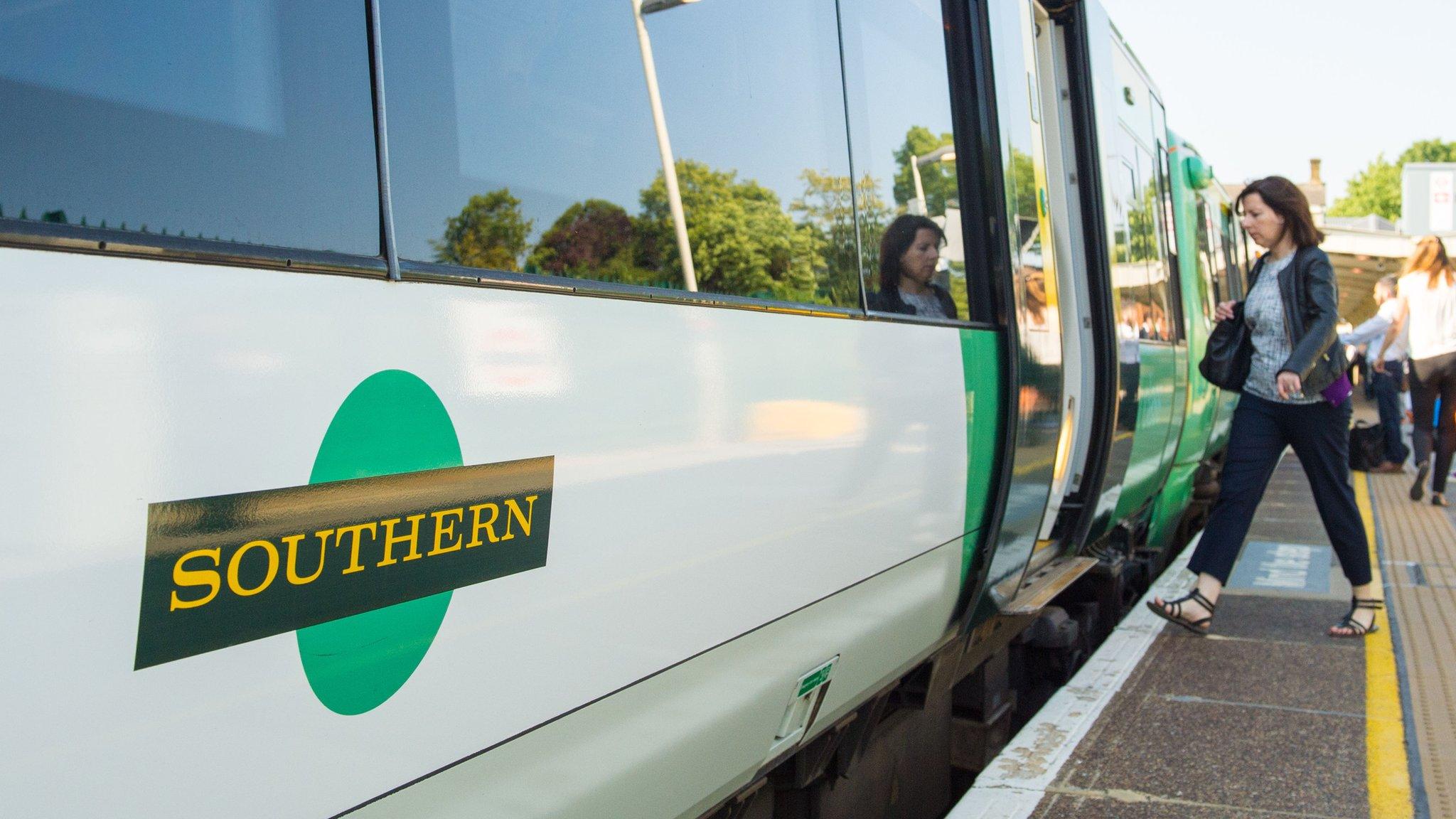
- Published2 December 2016
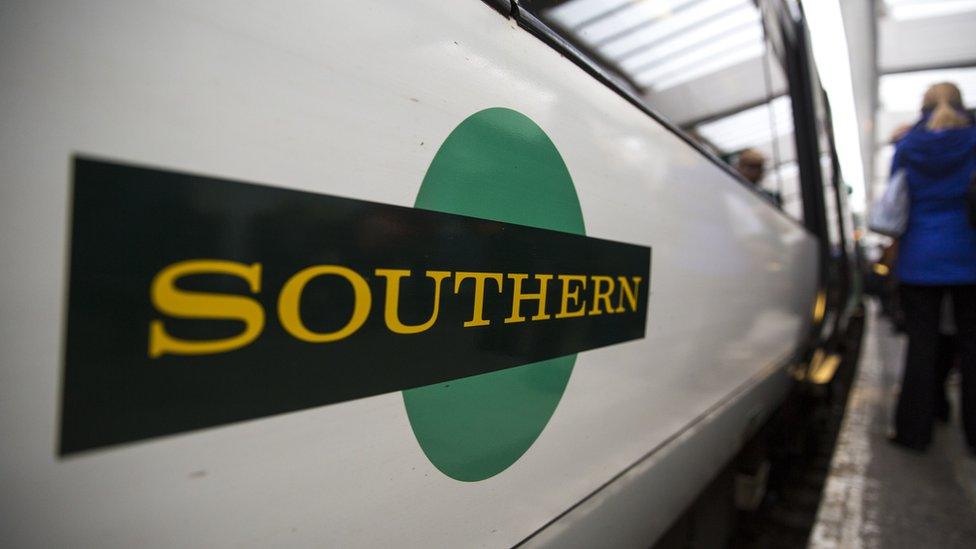
- Published1 December 2016
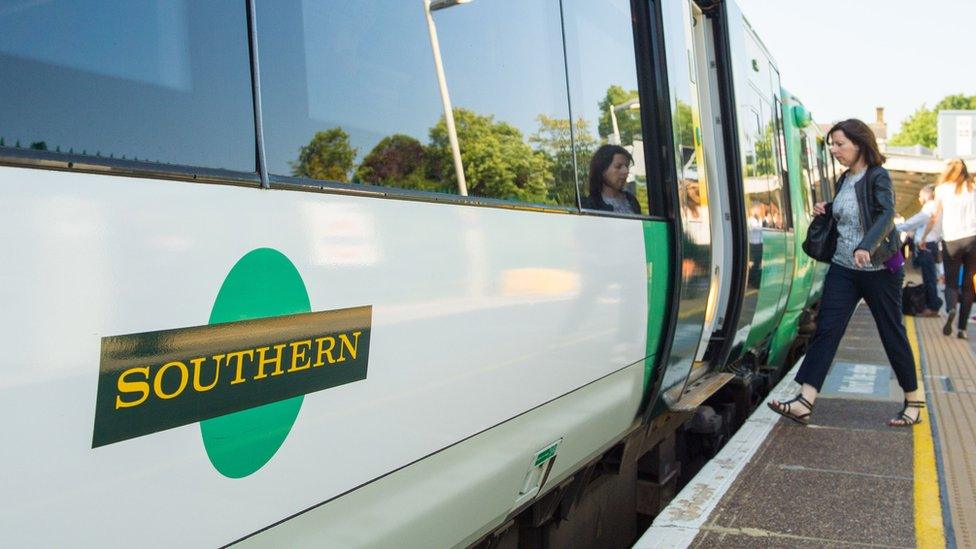
- Published1 December 2016
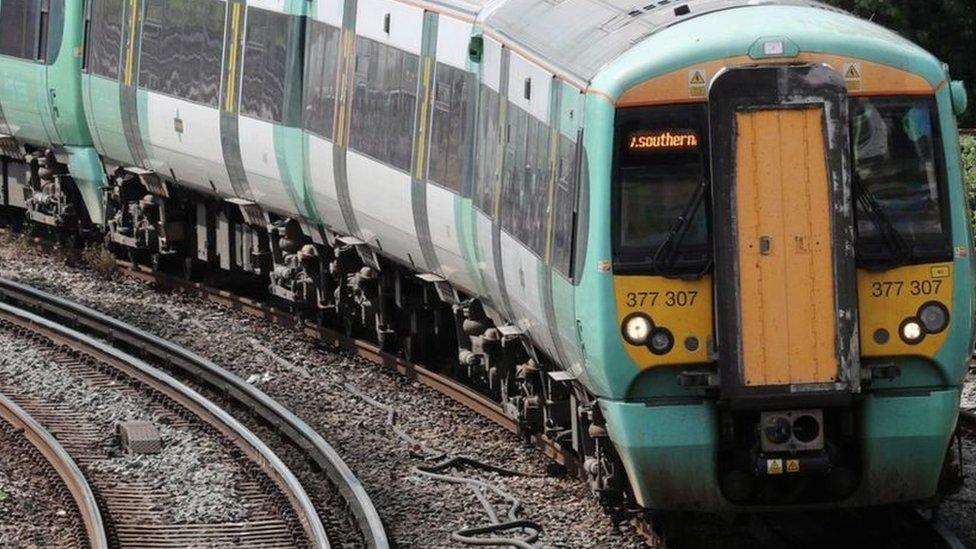
- Published28 November 2016
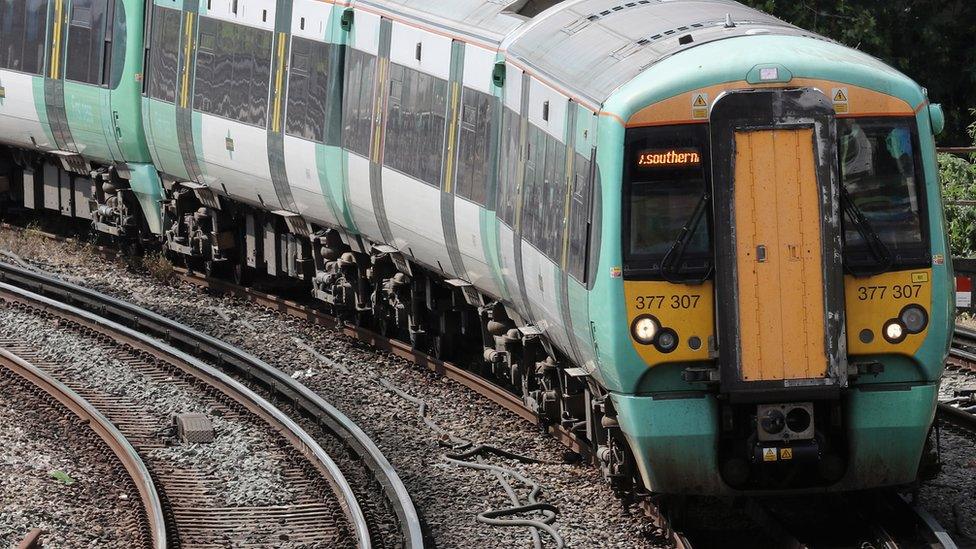
- Published22 November 2016
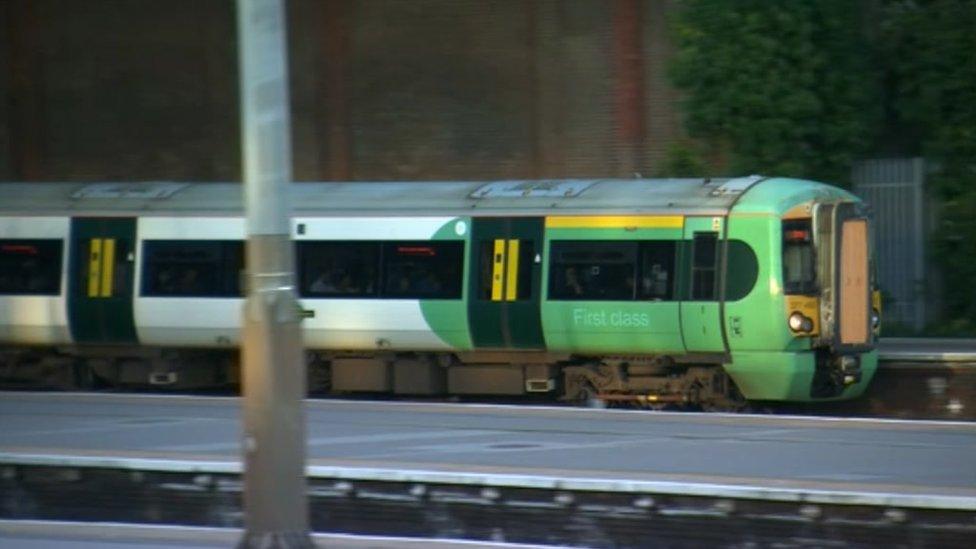
- Published21 November 2016
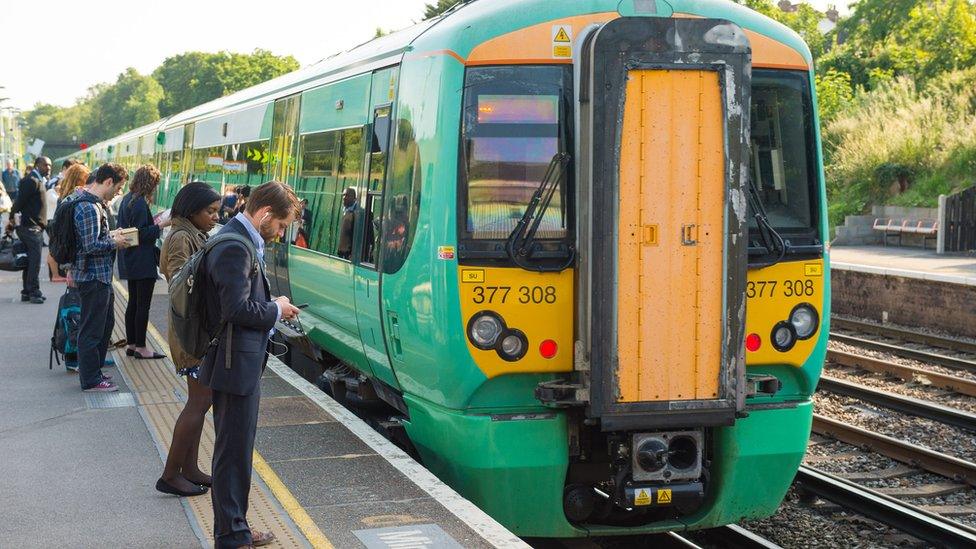
- Published17 November 2016
